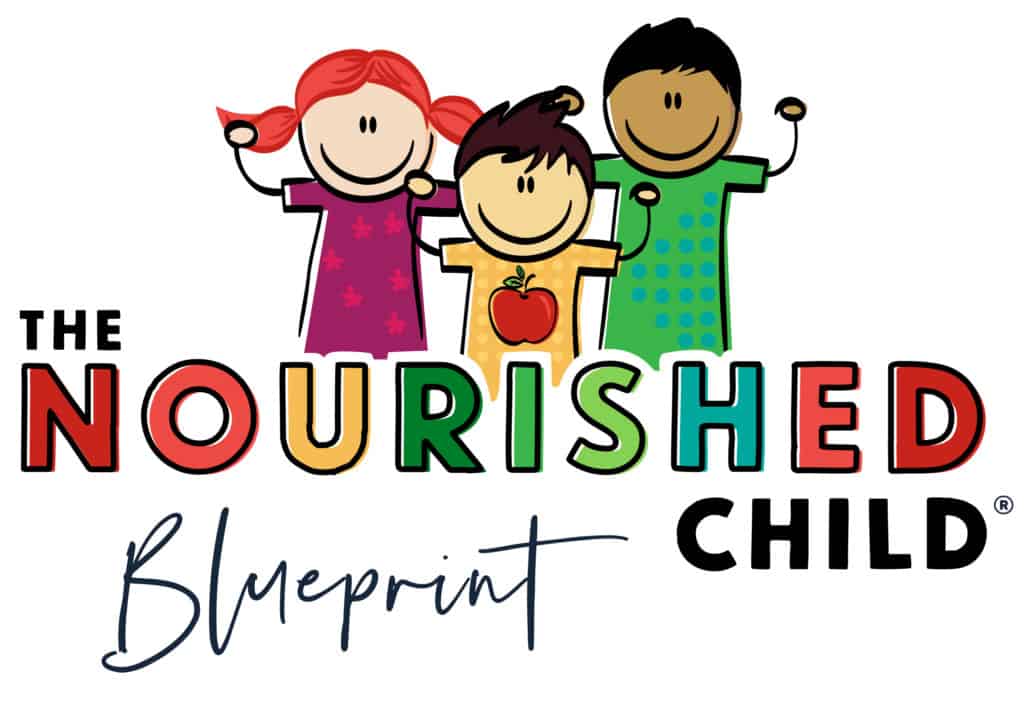What is a Healthy Relationship with Food?
December 20, 2017
Helping your child develop a healthy relationship with food is one of the important parenting tasks you’ll tackle as you raise and nourish your child. Learn how to keep this in mind.
I talk about helping children develop a healthy relationship with food all the time. I believe it’s one of the most important tasks you have as a parent.
This concept is a driving force behind Fearless Feeding. We (my co-author Maryann and I) knew that if children were fed with confidence, know-how and love, their joy of eating and relationship with food would thrive.
In this article, I will define a healthy relationship with food and help you cultivate this for yourself and your child.

I’ve known adults who have damaged relationships with food. They fear “bad” food. They binge or overindulge on the foods they love, and to correct themselves, diet to wipe away the indiscretion. They eat alone so they can better control their eating.
I talk about a healthy relationship with food with my clients and here on the blog because I know when moms and das don’t have a healthy relationship with food, it will be difficult to raise children who do.
Our Natural Compass
When we are born, we already have a natural sense of intuitive eating built in our bodies. I like to say this knowledge of how much and when to eat is “hard-wired” from the start.
Even though children can be some of the pickiest eaters, they are still capable of listening to their bodies and eating the right amounts of food when needed. Through a series of events – how children are fed, the environment of food and eating in the home and outside, and the foods they are exposed to – this intuition with eating can disappear as children grow.
Instead, food may become a tool of manipulation. One that we use to pacify emotions, motivate behavior or eating through punishment and threats, or one that is used as a reward.
It may or may not come as a surprise to learn that food parenting plays a large role in a child’s developing relationship with food. Children need their parents to guide them and give them the tools to maintain the healthy relationship with food with which they were born.
The ‘Healthy Relationship’ Details
Having a healthy relationship with food means you not only value the pleasure that food can provide, but you also respect your body’s physiological needs. Intuitive eating is a key phrase here, meaning that you listen to your body and feed it accordingly—not too much and not too little, and with just enough variety. For more on intuitive eating, visit this website.
In order for your child to develop a healthy relationship with food, you need to know when to take control and when to hold back and trust your child to make decisions for himself. This idea is best represented by the “division of responsibility,” developed by feeding expert, Ellyn Satter.
This concept comes alive when you are able to infuse structure to meals and snacks, lovingly draw limits and boundaries around food, and build your child’s autonomy with eating.

4 Ways to Foster a Positive Relationship with Food
There are several important steps you can take as a parent to foster your child’s relationship with food in a positive way:
Keep a schedule.
A consistent meal and snack schedule creates a reliable and predictable source of food for kids, which solidifies trust between you and your child. Without a predictable schedule, a child can become insecure or worried about when her next meal is, which may leads to lots of questions, food-seeking behavior and even overeating—all defense mechanisms against the possibility of being hungry later on.
Respect your child’s likes and dislikes.
Remember when you were a child and you hated certain veggies, but now those taste buds have grown up and you like a lot more, or at least are willing to try more? Your child is going through the same process. Although you don’t want to be a short-order cook, you can respect your child’s taste buds while offering new foods in a non-stressful way.
Choose and prepare the food, then relax!
Let your child choose how much food he wants to eat and which foods he wants to try on his plate. This goes hand in hand with respecting your child’s likes and dislikes—give your child a mixture of new foods and foods he will eat, then allow your child to explore his meal! Family-style meal service can really help this process along.
Be a role model.
This one should go without saying, but your child is constantly looking up to you. If you are modeling poor eating behavior, such as watching TV while eating, skipping meals, not eating a food because it is “bad” for you, your child learns unhealthy habits that can derail that healthy relationship with food.
Mealtime should be a pleasant experience with few distractions. If you can, sit down with your child during meals and snacks, model eating and enjoyment, and allow your appetite to guide your eating (mindful eating).
Feeding Should be Joyful
Feeding your child doesn’t have to be stressful! If you follow these four basic steps, you will feel much more relaxed about your child’s eating habits in no time.
Remember, negative feeding practices like pressuring your child to eat more, restricting access to seconds or unhealthy food, and rewarding with treats are not methods that promote intuitive eating.
Let your child be his own guide and explore new foods on his own terms. For more ideas and tips, read what it takes to really raise healthy eaters. Or listen to this podcast on the topic.
Want to take a proactive stance on food and nutrition for your child? Check out my program, The Nourished Child Blueprint.











